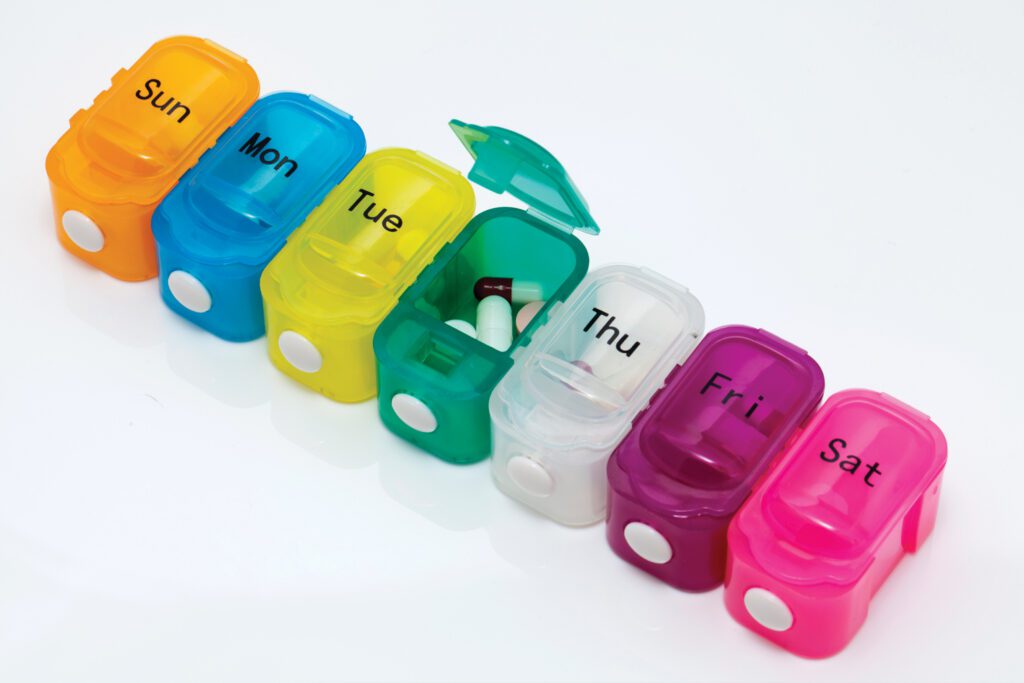Diet and exercise (and by diet we mean eating health, well-balanced meals, not trying dangerous trends to lose weight) are obviously the most important factors in maintaining a healthy weight. But there are several other factors that can impact your weight more than your might realize. Here, our experts weigh in on what these factors are and why they can affect that number on the scale.
1. Age
With age, it’s pretty common to see that number on the scale creep up, even if your eating habits haven’t changed since you were younger. In fact, studies suggest we tend to gain about one to two pounds per year. But why?

Dr. Jonathan H. Schafer, a primary care physician with Erlanger Primary Care – North, explains a combination of factors is at play here. “Weight gain with aging is typically attributed to two factors, a gradual slowing of metabolism and decreased physical activity.”
Sometimes it may appear age-related weight gain happens more with women than men, but that’s not actually the case. Rather, a change in the ratio of certain hormones like estrogen and testosterone can cause the redistribution of weight to be different for men and women.
“Weight gain associated with aging is not more common in women, but the redistribution of fat, particularly in the abdomen, is more gradual with men, making it appear that weight gain in women is greater,” says Dr. Schafer.

2. Hydration
You’ve heard it a million times – “Drink at least eight cups of water a day!” While it can seem like a chore to down that much water each and every day, our bodies can’t function properly without it. Beyond that, dehydration can lead to overconsumption of foods. Dr. Patricia McLelland, an OB-GYN with Galen Obstetrics & Gynecology, explains, “In general, most people should drink between 60-100 ounces of water daily. Many people don’t drink enough water, and they either perceive thirst as hunger or those feelings trigger food cravings.”
Water consumption and metabolism also go hand-in-hand. Studies have shown that drinking two cups of water before a meal can increase your metabolic rate by as much as 30%, so get to sipping!
3. Sleep
Sleep and weight are extremely interconnected. Think about it, if you aren’t getting enough sleep and you’re constantly tired, you may be more likely to grab extra food to keep you fueled throughout the day. And let’s be honest, sometimes those food choices aren’t exactly healthy.
In addition to making poor dining choices, a lack of sleep affects your hormones, which can also promote weight gain. Dr. Schafer explains, “A change in the levels of your leptin and ghrelin (the hormones that tell you when you’re hungry and when you’re full) is one of the explanations for weight gain that stems from a lack of sleep. Your circadian adrenal hormones can also be affected. Too little sleep can also lead to decreased activity levels due to fatigue, the craving of processed carbohydrates, and changes in neurotransmitter availability affecting behavior, all of which can promote weight gain.”
Getting adequate sleep (7-8 hours a night!) can help keep your cravings at bay and your hormones functioning properly. If you need to, try heading to bed a bit earlier tonight or shutting off those electronics an hour before it’s time to catch those ZZZs.
4. Genetics
Genetics play a huge role in the characteristics we develop and the people we become. They can also give us insights into our weight, with reports suggesting anywhere from 30-70% of the contribution to being overweight or obese comes from genetics. Everything from food cravings to appetite, body-fat distribution, stress eating, and more can be tied to genetics. Dr. McLelland explains, “It’s unclear how genetics contribute to weight gain, but there is good evidence that people can be predisposed. There are many studies showing that gaining too much weight in pregnancy or being overweight or obese before pregnancy sets up children to be overweight. This paired with the standard American diet that is high in simple carbohydrates and processed foods increases obesity, especially childhood obesity.”
5. Stress
For many of us, stress equals stress eating. But did you know that it’s not all in our heads? Stress can play a role in weight gain (or weight loss) because of its impact on cortisol (stress hormone) levels. “Most of us become overeaters when feeling a lot of stress. One explanation for this is that once our bodies reach a certain stress level, they go into ‘survival mode.’ Our body thinks we’ve used calories to deal with our stress, even though we haven’t. As a result, it thinks we need to replenish those calories, even though we don’t,” says Dr. Jaime Ponce, a bariatric surgeon with CHI Memorial Metabolic and Bariatric Care. “At physiologic levels, cortisol rises during times of stress. This can turn your overeating into a habit. And because increased levels of cortisol can lead to higher insulin levels, your blood sugar drops and you crave sugary, fatty foods, or what you might call ‘comfort foods.’”
Reducing stress levels is important in maintaining your weight, not to mention a whole host of other important functions. Dr. Ponce recommends looking to exercise, family and friends, meditation, reading, and more to ease stress.
6. Medications
When it comes to medications, it’s important to always be aware of the side effects. Some, for instance, are known to cause weight gain. Dr. Ponce explains, “Some steroids and antidepressants can stimulate your appetite, so you eat more. Some diabetes medications make the body hold on to more salt, which in turn leads to water retention and weight gain. Other medications increase weight by affecting how much fat you can store. For example, insulin stimulates the body to create tissues, including fat cells. Some other drugs (like beta-blockers for high blood pressure) can cause the body’s metabolism to slow down, which means that calories are not burned as quickly.”
On the other hand, some medications can make you lose weight unintentionally. Dr. Ponce explains, “There is a long list of medications that can cause decreased appetite including some anti-infective drugs (antibiotics, antifungals, antivirals, etc.), antineoplastics (for cancer treatment), bronchodilators (used for asthma or bronchitis), cardiovascular drugs, stimulants (like phentermine), and other medicines like anti-epilepsy drugs.”
If you notice a significant change in either direction, it’s important to talk to your doctor to ensure your body is handling the medication properly.
7. Medical Conditions

Just like with medications, some medical conditions can impact your weight. Dr. Ponce explains, “Cushing’s syndrome (when the adrenal glands produce too much cortisol, which leads to a buildup of fat in the face, upper back, and abdomen); hypothyroidism (when the thyroid is underactive, resulting in a slower metabolism); polycystic ovarian syndrome (hormonal imbalance in women with irregular menstrual bleeding, acne, excessive facial hair, thinning hair, and difficulty getting pregnant); metabolic syndrome (with associated insulin resistance and weight gain); and depression can all lead to weight gain.”
Other conditions may cause you to lose weight unexpectedly. Listen to your body and get regular checkups so that you can identify problems early.
If you are eating right and exercising regularly – it’s recommended to perform moderate exercise 150-180 minutes per week – but struggling with weight gain or weight loss, talk to your doctor. He or she will be able to provide insight and offer individual solutions to address your concerns.

Dr. Jaime Ponce
Bariatric Surgeon, CHI Memorial Metabolic and Bariatric Care

Dr. Patricia McLelland
OB-GYN, Galen Obstetrics & Gynecology

Dr. Jonathan H. Schafer
Primary Care Physician, Erlanger Primary Care - North
Editor’s Note: After the writing of this article, Dr. Schafer passed away unexpectedly. All of us at HealthScope® magazine offer our sincerest condolences to his family, friends, and professional colleagues.
